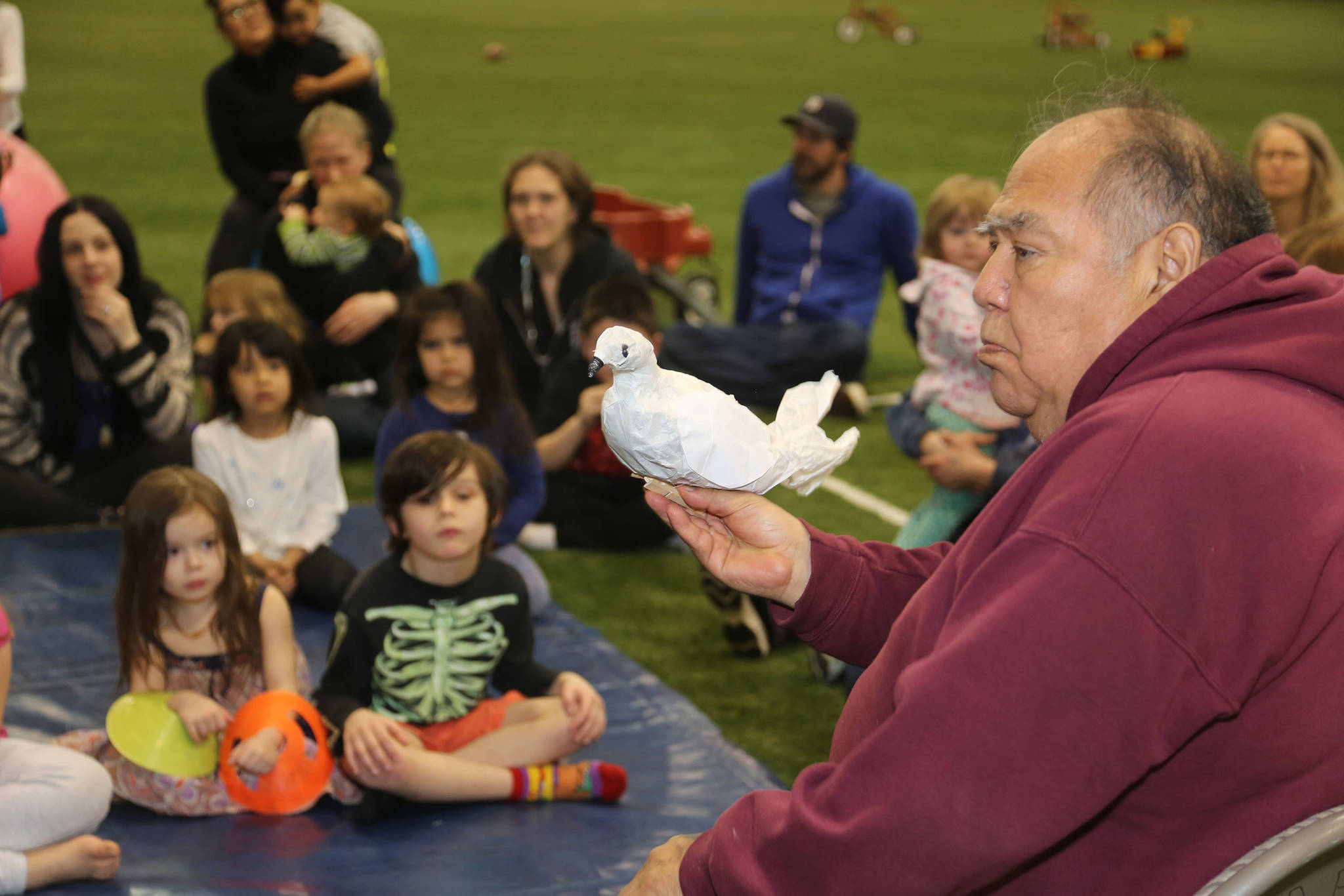Sealaska Heritage Institute’s early literacy program, Baby Raven Reads, has been recognized by the Library of Congress for the work it has done.
Some of that work includes publishing 17 books so far (though some of those have been released since the award was announced), holding monthly programs for Alaska Native families with children up to age five, and promoting language development and school readiness overall.
The program recently received the Library of Congress’ 2017 Best Practice Honoree Award, which recognizes organizations that have made contributions to increasing literacy in the United States or abroad. This year, the library recognized 15 programs around the world.
“We knew Baby Raven Reads was innovative and evaluations of the program have proven it to be effective in increasing literacy of participants. But to have the Library of Congress affirm that was very gratifying and humbling,” said SHI media specialist Kathy Dye. “It says something when the nation’s most important literacy organization gives accolades to your organization’s literacy program. We are very excited to receive this honor.”
The award comes with a $5,000 prize, which the program’s organizers will accept at a ceremony in Washington, D.C., this fall.
Improved academic performance, decreased dropout rates, and improved school attendance are all associated with culturally-based teaching resources and methods, according to studies.
Accordingly, Baby Raven Reads brings kids in for an hour and a half each month for events focused around culture-based activities, such as drum making, song and dance, oral tradition, storytelling, parent trainings, sewing, and community explorations such as field days, picnics, and beach days.
SHI also recently hired the McDowell Group to assess the program. The majority of respondents observed improvement in their children’s behavior in nine categories, they found. Those categories include vocabulary, asking to be read to, interest in school, overall interest in reading, attention when parent is reading a book, remembering and connecting experiences, use of the Tlingit language, constructively participating in group situations; and ability to sit quietly.
The area with the highest level of improvement was vocabulary, with 68 percent of participants saying kids’ vocabulary improved significantly. Forty-seven percent said their kids’ interest in school had increased significantly, and 31 percent said the same for their use of the Tlingit language.
• Mackenzie Fisher is a freelance writer based in Juneau. Capital City Weekly editor Mary Catharine Martin and staff writer Clara Miller contributed to this story.

